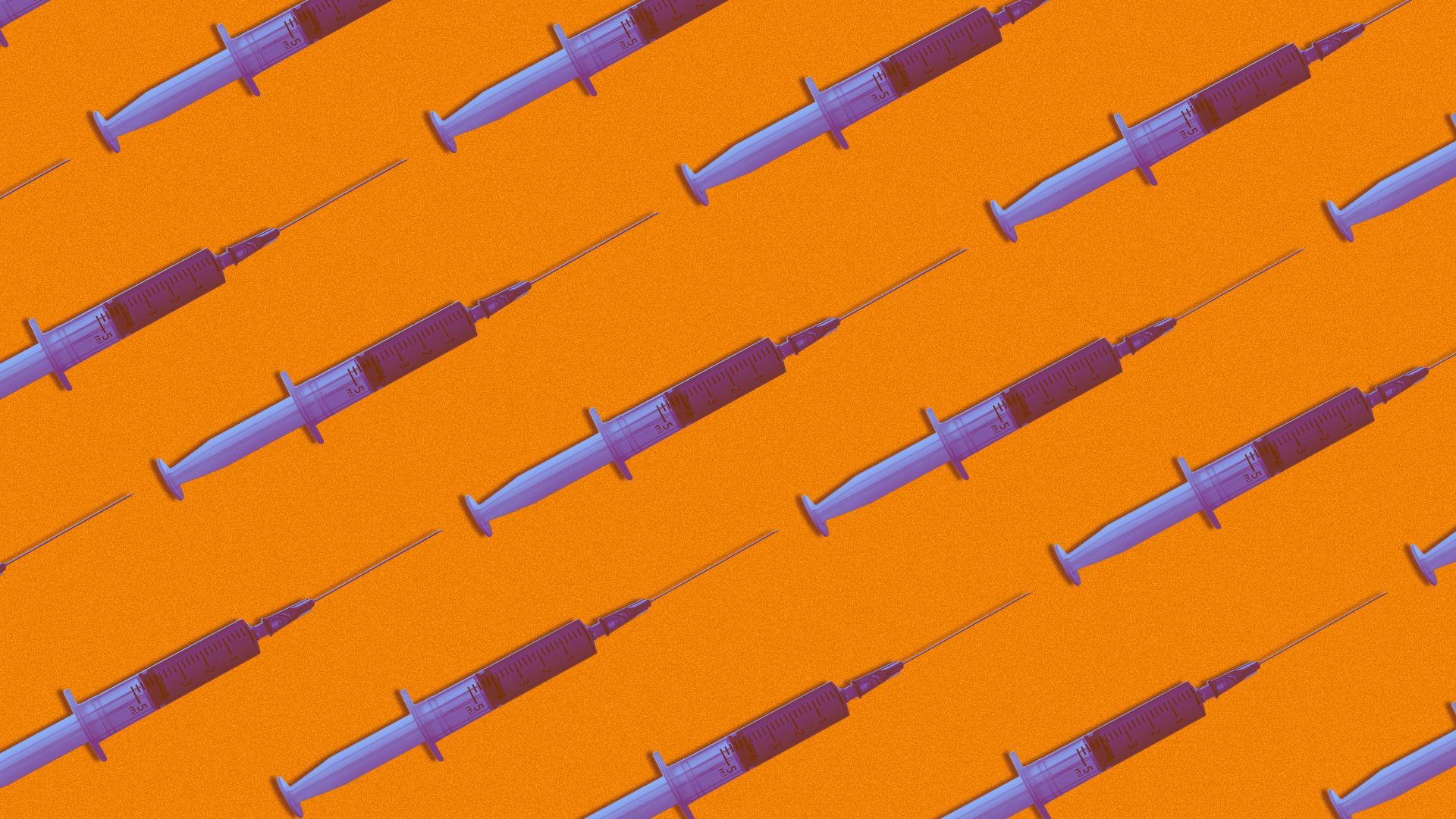What to know about getting the updated COVID vaccine
Add Axios as your preferred source to
see more of our stories on Google.

Illustration: Shoshana Gordon/Axios
An updated COVID-19 vaccine, reformulated to target a primary variant of the virus, is becoming available at pharmacies around the country.
Why it matters: The Centers for Disease Control and Prevention (CDC) recommends everyone 6 months and older get the updated vaccine.
- Here's what to know about getting it:
You can already schedule an appointment
Major pharmacies, including CVS and Walgreens are already offering appointments for the updated vaccine.
- Currently approved shots are produced by Moderna and Pfizer.
Will my insurance cover it?
Most insurance plans will cover the COVID-19 vaccine at no cost, the CDC said.
- This is the first updated COVID vaccine since the U.S. ended its public health emergency earlier this year, which ended most government programs to purchase and distribute the shots.
- Under the Affordable Care Act, most commercial health plans must cover immunizations. Medicare and Medicaid will also cover the shots.
Can I get it for free without insurance?
Through a federal "bridge access program," uninsured and underinsured people can also get vaccinated for free through 2024.
- People can get vaccinated through this program at pharmacies, through existing public health infrastructure and at local health centers. Some doses are already available. Distribution will ramp up through the rest of September.
- The Vaccines for Children program is federally funded and offers vaccines to eligible children.
Can I get my flu shot at the same time?
COVID-19 and flu vaccines can be co-administered, the CDC said. A person's immune response to each vaccine does not change if they're administered together or separate, per Johns Hopkins.
- Research showed no safety concerns with getting both together. You can get them both in the same arm or different arm, based on personal preference.
- If you want to get them on separate days, there's no set waiting period between them. But, "studies have shown that people who spread out their vaccines often don't follow through with getting both vaccines," according to Johns Hopkins.
What if I've never been vaccinated?
People who haven't previously received a COVID vaccine can get the updated shot. The CDC is moving away from calling the updated shot a booster.
- The updated vaccine is monovalent, meaning it will target a single variant, per UCLA Health. The strain it is targeting is similar to strains that are currently circulating in a late summer wave.
- "With flu shots, we don't ask you how many you got before. You just get an annual flu shot," said Dr. Dan Uslan, chief infection prevention officer for UCLA Health. "So that's basically what's happening with COVID."
How long should I wait if I recently had COVID?
The CDC recommends delaying a vaccine by three months from when symptoms started or when you received a positive test.
- "People who already had COVID-19 and do not get vaccinated after their recovery are more likely to get COVID-19 again than those who get vaccinated after their recovery," per the CDC.
Go deeper: Vaccinating the uninsured again will be tougher, experts say
